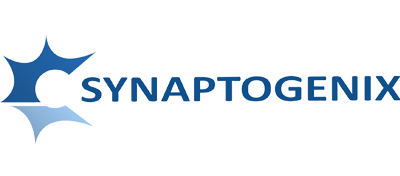Neurotrope Appoints Dr. Michael Ciraolo As General Counsel And Chief Operating Officer.
NEW YORK, April 1, 2019 /PRNewswire/ — Neurotrope, Inc. (NTRP), a clinical-stage biopharmaceutical company developing novel therapies for neurodegenerative diseases, including Alzheimer’s disease (“AD”), announced today that Michael Ciraolo, J.D., Ph.D., is joining the Company as general counsel and chief operating officer.
“I am very pleased to welcome Michael to the Neurotrope executive management team,” said Charles Ryan, Neurotrope’s chief executive officer. “He is an exceptional leader and lawyer and we expect will prove instrumental as we continue to execute at this important point in the Company’s evolution. We look forward to reporting top-line data from our current Phase 2 confirmatory clinical trial in the second half of 2019, and to making continued progress in exploring Bryostatin’s potential in other disease indications.”
Dr. Ciraolo was most recently at Ovid Therapeutics, where he served as senior vice president, chief intellectual property counsel. Prior to joining Ovid, he was an executive director at Forest Laboratories where he held positions of increasing levels of responsibility. He has been involved with the development of numerous pharmaceutical products and transactional matters, including mergers, acquisitions and licensing opportunities. Dr. Ciraolo began his legal career as an associate at Baker Botts LLP in New York City, received a Ph.D. in chemistry from Stony Brook University and a J.D. from St. John’s University School of Law.
“I am very excited to be joining the Neurotrope team at this pivotal time in the Company’s development. I believe that Bryostatin has tremendous potential as a treatment for moderate to severe AD, and I look forward to contributing to the success of Neurotrope as it prepares for data and beyond,” said Dr. Ciraolo.
About Neurotrope
Neurotrope is at the forefront of developing a new approach to combating AD and other neurodegenerative diseases. The Company’s world-class science offers the potential to realize a paradigm shift to overcome one of today’s most challenging clinical problems — finding a way to slow or even prevent the progression of AD.
In addition to the Company’s Phase 2 trial of Bryostatin-1 in advanced AD, Neurotrope has also conducted preclinical studies of Bryostatin-1 as a potential treatment for rare diseases and brain injury, including Fragile X syndrome, multiple sclerosis, stroke, Niemann-Pick Type C disease, Rett syndrome, and traumatic brain injury. The FDA has granted Orphan Drug Designation to Neurotrope for Bryostatin-1 as a treatment for Fragile X. Bryostatin-1 has already undergone testing in more than 1,500 people in cancer studies, thus creating a large safety data base that will further inform clinical trial designs.
Please visit www.neurotrope.com for further information.
Forward-Looking Statements
Any statements contained in this press release that do not describe historical facts may constitute forward-looking statements. These forward-looking statements include statements regarding the Phase 2 study and further studies, and continued development of use of Bryostatin-1 for AD, dementia and other cognitive diseases. Such forward-looking statements are subject to risks and uncertainties and other influences, many of which the Company has no control over. There can be no assurance that the clinical program for Bryostatin-1 will be successful in demonstrating safety and/or efficacy that we will not encounter problems or delays in clinical development, or that Bryostatin-1 will ever receive regulatory approval or be successfully commercialized. Actual results and the timing of certain events and circumstances may differ materially from those described by the forward-looking statements as a result of these risks and uncertainties. Additional factors that may influence or cause actual results to differ materially from expected or desired results may include, without limitation, the Company’s inability to obtain adequate financing, the significant length of time associated with drug development and related insufficient cash flows and resulting illiquidity, the Company’s patent portfolio, the Company’s inability to expand the Company’s business, significant government regulation of pharmaceuticals and the healthcare industry, lack of product diversification, availability of the Company’s raw materials, existing or increased competition, stock volatility and illiquidity, and the Company’s failure to implement the Company’s business plans or strategies. These and other factors are identified and described in more detail in the Company’s filings with the Securities and Exchange Commission, including the Company’s Annual Report on Form 10-K for the year ended December 31, 2018. The Company does not undertake to update these forward-looking statements.
Contact information:
Investors
Tom Caden
Vice President
CORE IR
516 222 2560
tomc@coreir.com
www.coreir.com
Media
Jules Abraham
CORE IR
917 885 7378
julesa@coreir.com








